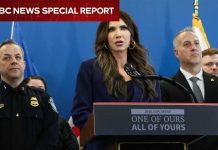
America’s loneliness epidemic has reached alarming levels in 2025, with 57% of citizens now suffering in isolation despite being more digitally connected than ever before.
Key Takeaways
- Gen Z and Millennials report higher loneliness rates than older generations, with 57% of Gen Z adults experiencing isolation
- Loneliness increases premature death risk by 26%, comparable to smoking 15 cigarettes daily
- 81% of lonely adults experience anxiety or depression, while 75% report a lack of meaning or purpose
- Over 50% of American workers classify as lonely, with remote work contributing significantly to workplace disconnection
- Men under 35 are particularly vulnerable, with 1 in 4 struggling with severe loneliness
The Silent Epidemic Ravaging American Society
As the Biden-Harris administration continues to focus on divisive identity politics and open borders, a far more dangerous epidemic is silently destroying American lives from within. The latest Cigna survey reveals a staggering 57% of Americans now identify as lonely, creating a public health crisis that rivals smoking in its deadly impact. While the government pours billions into programs for illegal immigrants, American citizens are suffering from a breakdown in traditional community structures and meaningful human connections.
This crisis disproportionately affects younger generations who have grown up in an increasingly digital, fragmented society. One in four men under 35 now struggle with severe loneliness, with Gen Z (57%) and Millennials reporting significantly higher rates than their parents or grandparents. The irony couldn’t be more stark – despite being constantly “connected” through technology, younger Americans feel more isolated than ever before, highlighting the failure of progressive social policies that have systematically undermined traditional family structures and community institutions.
The Devastating Health Consequences
The physical and mental health impacts of this epidemic are catastrophic and largely ignored by mainstream media. According to the Surgeon General’s report, loneliness increases the risk of premature death by 26% – comparable to smoking 15 cigarettes daily. It’s also linked to a 29% higher risk of heart disease and 32% greater stroke risk. These aren’t just statistics; they represent real Americans suffering while the government focuses on virtue signaling rather than addressing fundamental societal breakdown.
Mental health consequences are equally alarming, with 81% of lonely adults experiencing anxiety or depression. A shocking 75% report a complete lack of meaning or purpose in their lives. Meanwhile, suicide rates have risen by 33% in the past decade, now ranking as the 10th leading cause of death in America. The connection is clear – as traditional values, family structures, and religious participation decline under progressive policies, Americans are losing their sense of belonging and purpose.
The Workplace Connection Crisis
The American workplace, once a source of camaraderie and shared purpose, has become another casualty of progressive policies. Over 50% of American workers now classify as lonely, with remote work and reduced in-person collaboration contributing significantly to this disconnection. While Democrats champion “flexible work arrangements” as progress, the data shows these policies are creating isolated workers who feel disconnected from their colleagues and companies.
This workplace isolation isn’t just a personal problem – it’s an economic one. Lonely workers consistently report lower productivity and higher healthcare costs, creating a drain on businesses already struggling with inflation and excessive regulation. The push for remote work, initially accelerated by COVID policies that Democrats refused to end, has created a workforce that’s physically safer but emotionally devastated.
A Nation Divided Against Itself
Perhaps most concerning is how loneliness reflects deeper divisions in American society. Harvard’s comprehensive study found that 67% of lonely adults don’t feel part of meaningful groups, while 63% feel their place in the world lacks importance. Even more telling, 40% of lonely respondents state they don’t feel “part of this country” at all. This alienation from national identity is the predictable result of years of progressive messaging that America’s traditions and history are sources of shame rather than pride.
“The bidirectional relationship between loneliness and mental health conditions suggests interventions must address both social infrastructure and individual psychological needs,” notes the Harvard report, highlighting that this crisis requires rebuilding the very community structures that progressive policies have systematically dismantled.
The Technology Paradox
While overall loneliness has declined slightly (33% of U.S. adults report loneliness, down 4% from 2024), Gen Z adults aged 18–24 face rising isolation at 57%. This generation, raised on social media and digital connection, is experiencing the consequences of replacing real human interaction with virtual approximations. Despite being constantly “connected,” they’re more alone than ever – a warning about the society we’re creating under the guise of technological progress.
The solution to America’s loneliness epidemic won’t come from government programs or technological fixes. It requires rebuilding the foundations of community that have been eroded: strong families, religious participation, local community organizations, and a shared national identity. Until political leaders acknowledge the devastating impact of policies that have undermined these traditional structures, Americans will continue to suffer in isolation while being told they’re more “connected” than ever.
Sources:
Harvard: Loneliness in America 2024
Fortune: Gen Z and Millennial Men Loneliness
Cigna Group: Loneliness in America
Managed Healthcare Executive: More Than Half of Americans Are Lonely
MindForge Foundation: The Mental Health Crisis in America 2025
Surgeon General’s Advisory on Social Connection
CivicScience: The State of Loneliness in America







